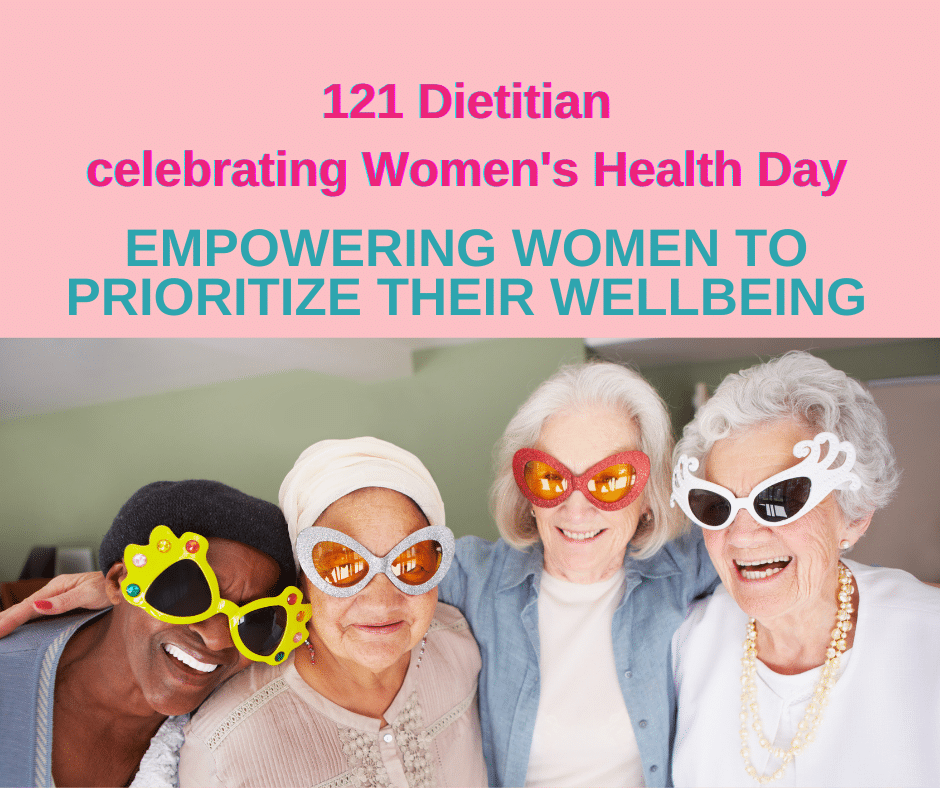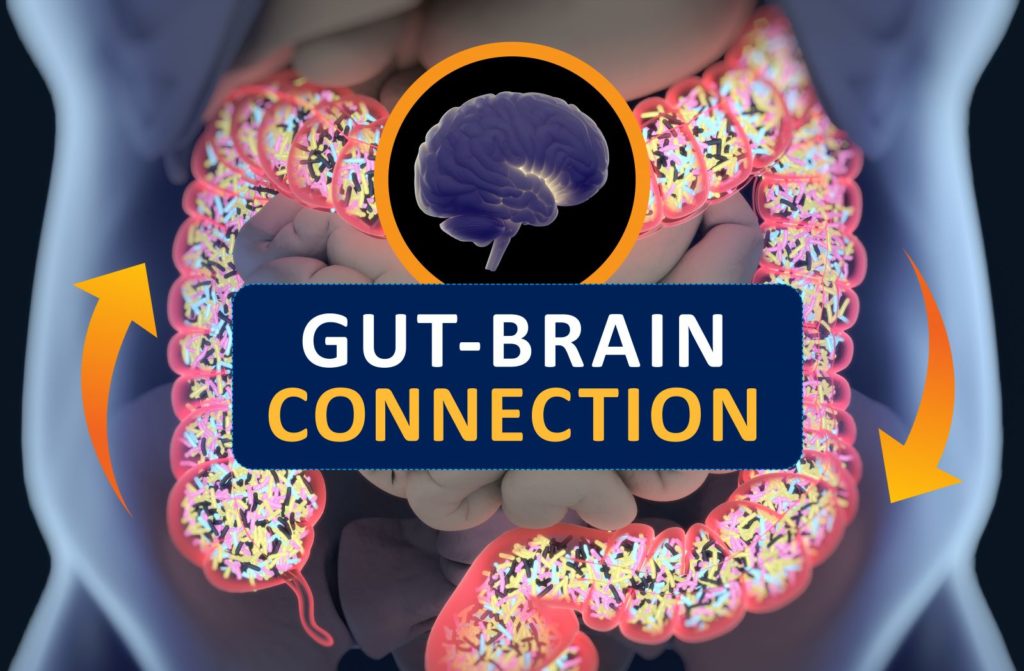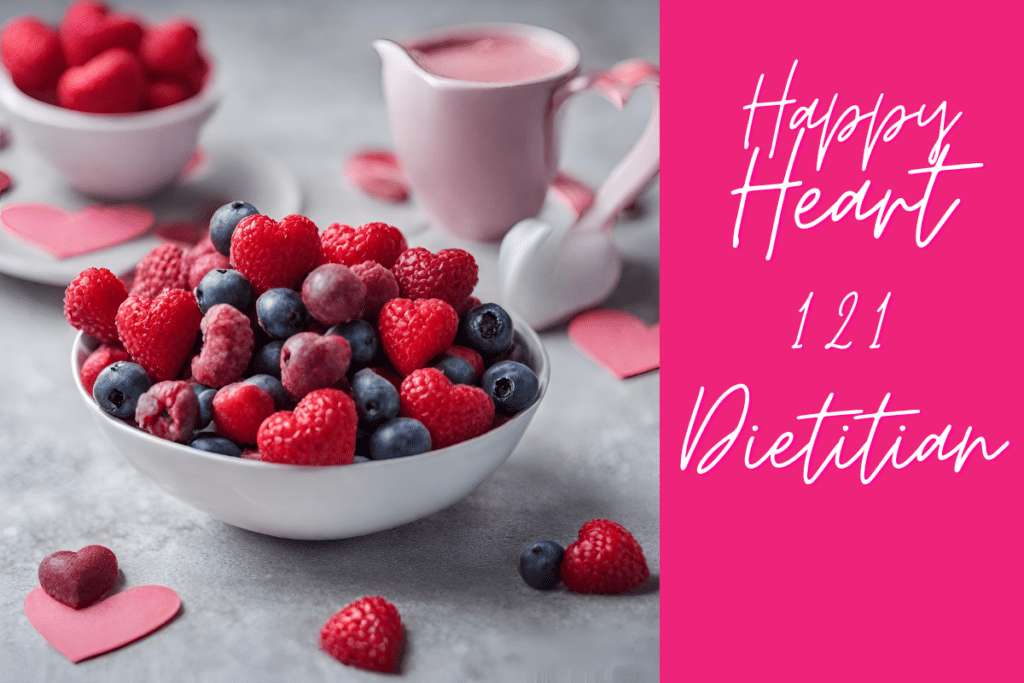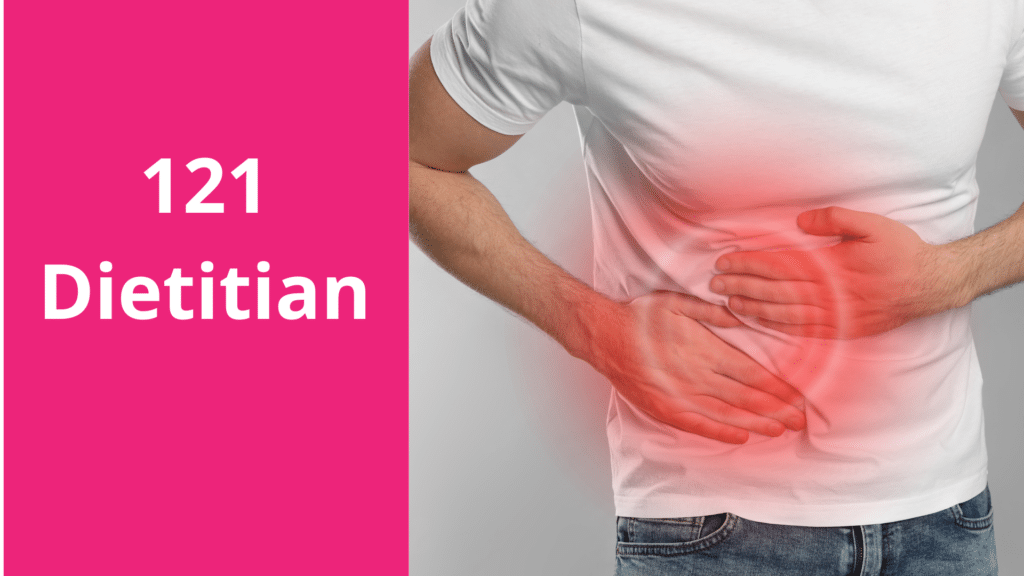Unlocking Female Wellness: A Comprehensive Guide by Gillian Killiner, Specialist Dietitian

Welcome to Women’s Health Day On Friday 8th March, we celebrate womanhood and the importance of prioritizing women’s health. This blog post, delves into how Gillian Killiner, a specialist dietitian, can optimize female health across various aspects, including hormones, gut health, weight management, sleep, stress, mood, fertility, bone and heart health… Understanding Female Health Hormonal Harmony Maintaining hormonal balance is of utmost importance when it comes to the overall well-being and health of women at all ages. Gillian Killiner, with nearly 30 years experience in nutrition education stresses the significance of adopting a diet that is abundant in essential nutrients specifically targeted at supporting hormonal health and avoiding diets that are focused on strict energy restriction. By incorporating foods such as nutrient-dense leafy greens, omega-3 fatty acids found in sources like fish and flaxseed, as well as lean proteins into one’s daily meals, it becomes possible to effectively regulate hormones and promote optimal functioning of the endocrine system. These dietary choices can contribute to alleviating symptoms associated with hormonal imbalances and ultimately improve the overall quality of life for women. Nurturing Gut Health The gastrointestinal tract, commonly referred to as the gut, holds significant importance in maintaining optimal health for women. Its impact extends beyond mere digestion, as it actively influences immune function and overall well-being. Gillian Killiner, a renowned advocate for women’s health and a gut specialist Dietitian, strongly recommends adopting a diet that is rich in fibre, probiotics, and prebiotics to promote a flourishing gut microbiome. This approach not only facilitates efficient digestion but also contributes to hormonal balance and regulation of mood, underscoring its holistic benefits for women’s health. Gillian has helped thousands of troubled sufferers with IBS, Diverticular Disease, Coeliac Disease, reflux, diarrhoea, constipation, wind, gurgling and inflammatory bowel disease….. break free of their unpleasant symptoms and enjoy the quality of life they should. Check out her recent blogs on gut health below…. Resilient Weight Loss Effective weight management is a common concern faced by many women. It can often feel like an overwhelming challenge, but there are personalized strategies available to help navigate this journey. One such expert in this field is Gillian Killiner, who specializes in providing tailored solutions that cater to individual needs and preferences. Gillian’s approach focuses on promoting sustainable lifestyle changes rather than resorting to drastic measures. She understands the importance of empowering women to achieve their weight loss goals by adopting healthy habits that are maintainable in the long run. By tailoring her strategies to suit each individual’s unique circumstances, Gillian ensures that her clients receive personalised guidance and support throughout their weight management journey. Through her expertise and dedication, Gillian helps women overcome the hurdles associated with weight management. Her goal is not just about shedding pounds; it’s about fostering a positive relationship with food, improving overall well-being, and achieving lasting results. With her guidance, women can feel confident in taking control of their health and transforming their lives for the better. Removing the stress and making food enjoyable is Gillian’s passion and strength. Elevating Mood and Energy Nutrition plays a significant role in mood regulation and energy levels. Gillian recommends nutrient-dense foods, such as complex carbohydrates, lean proteins, and foods rich in vitamins and minerals, to support mental well-being and sustained energy throughout the day. Fostering Fertility When it comes to women who are planning to conceive, ensuring optimal nutrition becomes of utmost importance. Gillian Killiner offers valuable guidance on fertility-friendly foods and lifestyle modifications that can significantly enhance reproductive health. With her track record of patients and successful pregnancies she helps women address any nutritional deficiencies they may have and promotes hormonal balance, which ultimately increases their chances of successful conception. By incorporating Gillian’s recommendations into their daily lives, women can take proactive steps towards optimizing their fertility journey. Nurturing Heart Health Heart disease is a leading cause of mortality among women worldwide. 121 Dietitian’s educate women on heart-healthy eating habits, emphasizing the importance of a balanced diet low in saturated fats, sodium, and added sugars. Incorporating foods like fruits, vegetables, whole grains, and lean proteins can support cardiovascular health and much more… Health and Wellness Shop Conclusion On this International Women’s Health Day, let’s prioritize our well-being and empower ourselves with the knowledge to lead healthier lives. Gillian Killiner, with her expertise as a specialist dietitian, offers invaluable insights and guidance to optimize female health across various domains. By embracing nutritious eating habits and lifestyle modifications, women can nurture their bodies, minds, and spirits for a vibrant and fulfilling life. Don’t forget to share this valuable resource with your friends and family, and together, let’s embark on a journey towards holistic wellness! Check out our Health and Wellness shop created by Gillian for you. This is an affiliated Amazon Shop so if you make a purchase we may receive a very small commission. 121 Dietitians have limited bookings available for Women’s Health Day so do click on the link below. If you want to book your programme TODAY we would love to help you. You can book a 121 Dietitian Programme today by clicking on the link below BOOK TODAY
Optimizing Emotional Health Through Diet

Discover how focusing on diet and gut health can transform negative emotions into positivity and vitality.
The Heart Healthy Power of Antioxidants

Celebrate Valentine’s Day by learning about the importance of antioxidants for heart health! Gillian Killiner, a specialist dietitian, sheds light on how these powerful compounds can keep your heart strong and vibrant.
How Gillian Killiner, Specialist GI Dietitian, Transforms Digestive Health

Gillian Killiner RD, a renowned Specialist GI Dietitian and the founder of 121 Dietitian, is on a mission to revolutionise digestive health care. With her wealth of experience and dedication to patient-centric care, Gillian empowers individuals with gastrointestinal (GI) conditions to navigate their dietary challenges and reclaim their well-being. In this blog, we delve into Gillian’s expertise and explore how she leverages her skills to make a positive impact on the lives of her patients. Meet Gillian Killiner: A Pioneer in GI Dietetics Gillian Killiner stands at the forefront of GI dietetics, pioneering innovative approaches to dietary management for individuals with GI conditions. With a passion for improving patient outcomes and a commitment to evidence-based practice, Gillian’s work has earned her widespread recognition as a leader in her field. Founding 121 Dietitian Driven by a desire to bridge the gap between nutrition and gastrointestinal health, Gillian founded 121 Dietitian 2008, a specialised dietetic service dedicated to supporting individuals with GI conditions. Through 121 Dietitian, Gillian offers personalised dietary guidance, empowering patients to achieve optimal digestive wellness. Gillian’s Approach to Patient Care Personalised Dietary Assessments At the heart of Gillian’s practice lies a commitment to individualised care. Through comprehensive dietary assessments, Gillian gains insights into each patient’s unique nutritional needs, medical history, and lifestyle factors. This personalised approach enables her to develop tailored dietary plans that address the specific challenges faced by her patients. Evidence-Based Interventions Gillian’s recommendations are grounded in the latest scientific research and best practices in GI dietetics. By staying abreast of emerging trends and advancements in the field, Gillian ensures that her patients receive the most up-to-date and effective dietary interventions available. Holistic Support and Education Beyond dietary recommendations, Gillian provides holistic support and education to her patients, empowering them with the knowledge and tools needed to manage their condition effectively. Through one-on-one counselling sessions, educational resources, and ongoing support, Gillian equips individuals with the skills to make informed choices and take control of their digestive health. How Gillian Helps Patients Navigate GI Conditions Managing Irritable Bowel Syndrome (IBS) Gillian specialises in assisting patients with conditions such as irritable bowel syndrome (IBS), offering tailored dietary strategies to alleviate symptoms and improve quality of life. By identifying trigger foods, implementing dietary modifications, and providing ongoing support, Gillian helps individuals with IBS regain control over their digestive health. Navigating Inflammatory Bowel Disease (IBD) For those living with inflammatory bowel disease (IBD), Gillian offers invaluable support in managing their condition through diet. By addressing nutritional deficiencies, optimising nutrient absorption, and advising on disease-specific dietary approaches, Gillian empowers patients with IBD to better manage their symptoms and enhance their overall well-being. Conclusion Gillian Killiner, Specialist GI Dietitian and founder of 121 Dietitian, is a beacon of hope for individuals struggling with gastrointestinal conditions. Through her expertise, compassion, and unwavering dedication to patient care, Gillian transforms lives by empowering her patients to navigate their dietary challenges with confidence and resilience. With Gillian’s guidance, individuals with GI conditions can embark on a journey towards improved digestive health and enhanced quality of life. If you want to book your programme TODAY we would love to help you. You can book a 121 Dietitian Programme today by clicking on the link below BOOK TODAY
How to Improve Gut Health in the UK

Understanding Gut Health Gut health is a very common concern that Gillian Killiner, our 121 gut specialist award winning Dietitian is asked to assess by Drs, Consultants, AHPs and patients who self-refer. She treats many every day, whether it be through online consultations or face-to-face in her clinic. If you’re not familiar with the concept of gut health, don’t worry! It’s a broad topic that encompasses various aspects related to different parts of the body, in addition to the gut itself and in the next few blogs we hope to cover these areas in more detail so you can get a better understanding. Gut Bacteria The gut microbiota, also known as gastrointestinal bacteria, is a diverse community of microorganisms that reside primarily in a part of the large bowel known as the colon, which is part of the digestive tract. This community includes bacteria, viruses, fungi, and other single-celled organisms. The gut microbiota plays a crucial role in various aspects of human health, and its composition can vary among individuals. A healthy gut not only strengthens our immune system but also supports the well-being of essential organs like the heart and brain. Moreover, it positively influences mood, fostering happiness and satisfaction. We know that when the gut is not balanced health is compromised at many levels. How are we able to assess our gut bacteria? Research into gut bacteria has been conducted since the invention of the microscope around 1665. Over the past 30 years, there has been a significant leap in this field, thanks to the sequencing of small molecules of life, including DNA and eventually RNA. What is Gut Health? The term “Gut health” is the umbrella term for various health conditions including : GERD Irritable bowel syndrome Hemorrhoids Coeliac disease Gallstones Constipation Diverticulitis Gastritis Ulcers Colorectal cancer Diarrhoea Gastrointestinal infections Liver disease Pancreatitis Esophageal cancer Gastroparesis Years of research and work in practice link these conditions to our gut bacteria whether as a direct cause, preventative or used as a treatment. In addition extensive research has also been linking the vital organs like brain, heart, liver, skin to our gut bacteria and how imbalances in the gut microbiota can lead to increased intestinal permeability or “leaky gut,” allowing harmful substances to enter the systemic circulation and burdening liver function. We know the health of our skin is closely linked to our gut health due to their shared immune system involvement. Research indicates that disruptions in the balance of intestinal flora may contribute to skin conditions like acne, eczema, psoriasis, rosacea, and dermatitis. The gut-brain axis is a bidirectional communication system between the brain and the GI tract. Treating the gut can directly assist mental health and well-being. Our Gut Health Programme is adapted to suit all gut health issues and more. Excellent Gut Health Ensuring excellent gut health at every age is crucial for overall wellness. An effective digestive system also promotes efficient nutrient digestion and absorption, which subsequently enhances sleep quality. Hence, giving priority to gut health is highly recommended. × Dismiss this alert. Dietitian’s Role in Managing Digestive Disorders A dietitian plays a crucial role in managing digestive disorders by providing tailored nutritional guidance to alleviate symptoms, promote digestive health, and improve overall well-being. Our 121 Gut Health Programme has helped thousands of people not only regain control of their bowel symptoms and health but also improve their sleep, mental clarity, weight and other health issues. How does 121 Dietitian work to improve Gut Health? At 121 Dietitian we work closely with other healthcare professionals to aid in the diagnosis and treatment of digestive disorders. We perform detailed individual assessments take a deep dive into the detail in our 60-minute consultation before writing up a detailed bespoke plan, supplement and lifestyle protocol. Before attending an appointment, our patients are required to log in to our online Portal to complete our background questionnaire and Food and Symptoms Diary. This part of the programme is completely free of charge and allows one of our specialist dietitians to direct you to select the correct programme. The programme includes a 30-minute review to ensure the programme has been successful and provide further nutritional advice and guidance as part of the programme requirements. Mairead AdamsGoogle Review Read More After having COVID at the end of 2022 I suddenly developed allergies to Milk products and intolerances to other foods. My Gastroenterologist recommended I see Gillian, who put me on her low Fodmap Programme at the end of September and I am now at the Reintroduction Stage. Since commencing the Programme, my bowel movements and general health have improved dramatically. I sleep better and a number of my aches and pains have gone. After having diarrhoea for 9 months, effectively, I can now go out and about without that worry of knowing if I will be close to a toilet and if I will be able to get there on time, to constantly carrying Immodium, just in case. The peace of mind this has given me is enormous, never mind that I now feel more like a ‘normal’ person. I still have to watch what I eat, especially in relation to my milk allergy, which may take a bit longer to ‘fix’, if it can be fixed. However, the change in me is amazing and I am extremely grateful to Gillian for her time, advice and patience in getting me to this point. Thank you Gillian. How a Specialist Dietitian can fix your Gut… Specialist gastrointestinal Dietitian Gillian Killiner brings her 26 years of dietetic experience to help each patient she sees. Her deep dive is extensive – here are just some of the areas covered…. Fibre Management We guide patients on appropriate fibre intake, considering the type and amount of fibre that can aid in digestion without causing discomfort. Food Allergies and Intolerances We identify and address food allergies or intolerances that may contribute to digestive issues.Recommend suitable alternatives to replace problematic foods. Hydration We emphasise the importance of adequate
Meet the 121 Dietitian Team

121 Dietitian provides a full Private Dietetic Service across the UK, Northern Ireland and worldwide. Founder Gillian Killiner is the Lead Dietitian supported by the following specialist team.